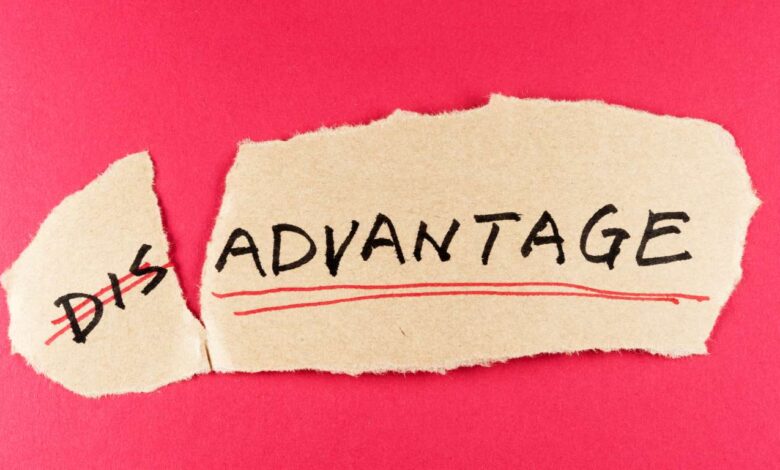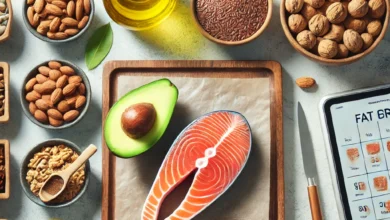What Are the Disadvantages of Carbohydrates in Our Health?

Carbohydrates are an essential part of our daily diet, providing the energy our bodies need to work properly. But eating too many carbohydrates, especially those with lots of sugar, can cause various health problems. In this article, we’ll talk about the bad things that can happen when you eat too many carbs and how to keep a balanced diet for good health.
The Downsides of Eating Too Many Carbs
While carbohydrates are important, eating too many of them can be a problem. Let’s look at these issues in detail:
- Weight Gain and Obesity: If you eat too many carbs, especially the sugary and refined kind, you can gain weight. Extra carbs your body doesn’t use get stored as fat, which can lead to obesity. Obesity raises the risk of heart disease and diabetes.
- Blood Sugar Spikes: Eating a lot of carbs, especially those with a high glycemic index, can cause your blood sugar to shoot up quickly. This can give you a sudden burst of energy followed by a crash, leaving you tired. Over time, this can lead to insulin resistance, a step toward type 2 diabetes.
- Higher Risk of Type 2 Diabetes: Diets full of refined carbs like sugary snacks and drinks can up your chances of getting type 2 diabetes. These foods can lead to insulin resistance, making it hard for your body to control blood sugar properly.
- Dental Problems: Many carb-rich foods have sugars that can hurt your teeth. Eating sugary snacks and drinks a lot can damage your teeth and gums, causing cavities and other dental troubles.
- Lack of Nutrients: If you rely too much on carbs and forget about other important nutrients, you might miss out on essential vitamins, minerals, and protein. This can affect your overall health, weaken your immune system, and lead to various health issues.
- Heart Disease Risk: Diets heavy in refined carbs and added sugars are linked to a higher chance of heart disease. These foods can raise triglycerides and lower HDL (good) cholesterol, which can cause heart problems.
- Energy Ups and Downs: Eating too many carbs can make your energy levels go up and down all day. You might feel energetic right after a big carb-filled meal, but then you crash and feel tired, making you crave more carbs.
- Digestive Troubles: Some types of carbs, especially in processed foods, can be hard to digest. This can lead to tummy problems like bloating and irregular bathroom trips.
To stay healthy, it’s important to have carbs in the right amounts and choose healthier sources like whole grains, fruits, and vegetables. If you’re worried about your carb intake or have health issues, talk to a doctor or nutritionist for guidance.
Understanding Carbohydrates
Before we talk more about the potential problems with carbohydrates and our health, let’s learn about the two main types of carbs and what they do in our diet.
Simple Carbohydrates:
These are often called “bad” carbs. They’re made of simple sugars and are found in things like candy, sugary drinks, pastries, and many processed snacks. Eating too many simple carbs can cause your blood sugar to spike quickly, which might lead to health issues over time.
Complex Carbohydrates:
These are the “good” carbs. They’re made of longer chains of sugars and have dietary fiber. You can find complex carbs in whole grains, fruits, vegetables, legumes, and other natural foods. Complex carbs give you steady energy, help your digestion, and give you important nutrients.
Knowing the difference between simple and complex carbs is important for making smart food choices. It’s not about getting rid of carbs entirely but picking the right ones and not having too much of them. If you are interested in this type of article, here is our top recommended article: How Do Carbohydrates Store Energy in the Body?
Strategies for Healthy Carbohydrate Eating
Now that we know the different kinds of carbs, let’s talk about how to eat them wisely and stay healthy:
Go for Whole Foods: Choose foods that are not processed. Pick whole grains like brown rice, quinoa, and whole wheat bread. Add lots of fruits and veggies to your meals to get the good stuff your body needs.
Read Food Labels: When you buy packaged foods, read the labels carefully. Find stuff with less added sugar and more fiber. Look for foods with ingredients you understand.
Watch Portion Sizes: Pay attention to how much you eat, especially when it comes to foods with lots of carbs. Try to balance your plate with lean protein, healthy fats, and colorful veggies.
Cut Back on Sugary Snacks and Drinks: Don’t have too many sweet snacks, desserts, or sugary drinks. They often have calories with no good stuff in them and can make you gain weight and have sugar problems. If you crave something sweet, choose healthier options.
Spread Carbs Throughout the Day: Eat carbs at different times during the day. This can help you have a steady level of energy and keep your blood sugar in check.
Stay Hydrated: Drink lots of water all day long. It helps you stay healthy and can help you avoid craving too many snacks, even the sweet ones.
By making smart choices about the kinds and amounts of carbs you eat, you can have a balanced diet that keeps you healthy and feeling good. Remember, it’s not about avoiding carbs completely; it’s about making informed decisions that match your nutritional needs and goals.
Conclusion:
Carbohydrates are important for our diet, but too many refined and sugary ones can be bad for us. This can lead to weight gain, blood sugar problems, and higher risks of diseases. We can make good food choices to stay healthy.
FAQs:
Q: Are all carbs bad for us?
A: No, not all carbs are bad. Complex carbs in whole grains, fruits, and veggies are needed for a healthy diet. It’s the extra refined and sugary carbs that can harm our health.
Q: How can I eat fewer carbs?
A: To cut down on carbs, choose whole foods that are not processed. Pick lean protein, eat lots of veggies, and go for whole grains instead of refined ones. Remember to eat in moderation.
Q: Is a low-carb diet good for us?
A: Some people can benefit from a low-carb diet, especially if they want to lose weight or control their blood sugar. But it’s best to talk to a doctor before making big changes to your diet.
Q: What are better snacks instead of high-carb ones?
A: Healthier snack options include nuts, seeds, Greek yogurt, and fresh fruits. These give you important nutrients without too many carbs.
Q: Are there carbs that are healthier for us?
A: Yes, complex carbs like whole grains, legumes, and veggies are good for us. They have nutrients, and fiber, and give us lasting energy without causing quick blood sugar jumps.




